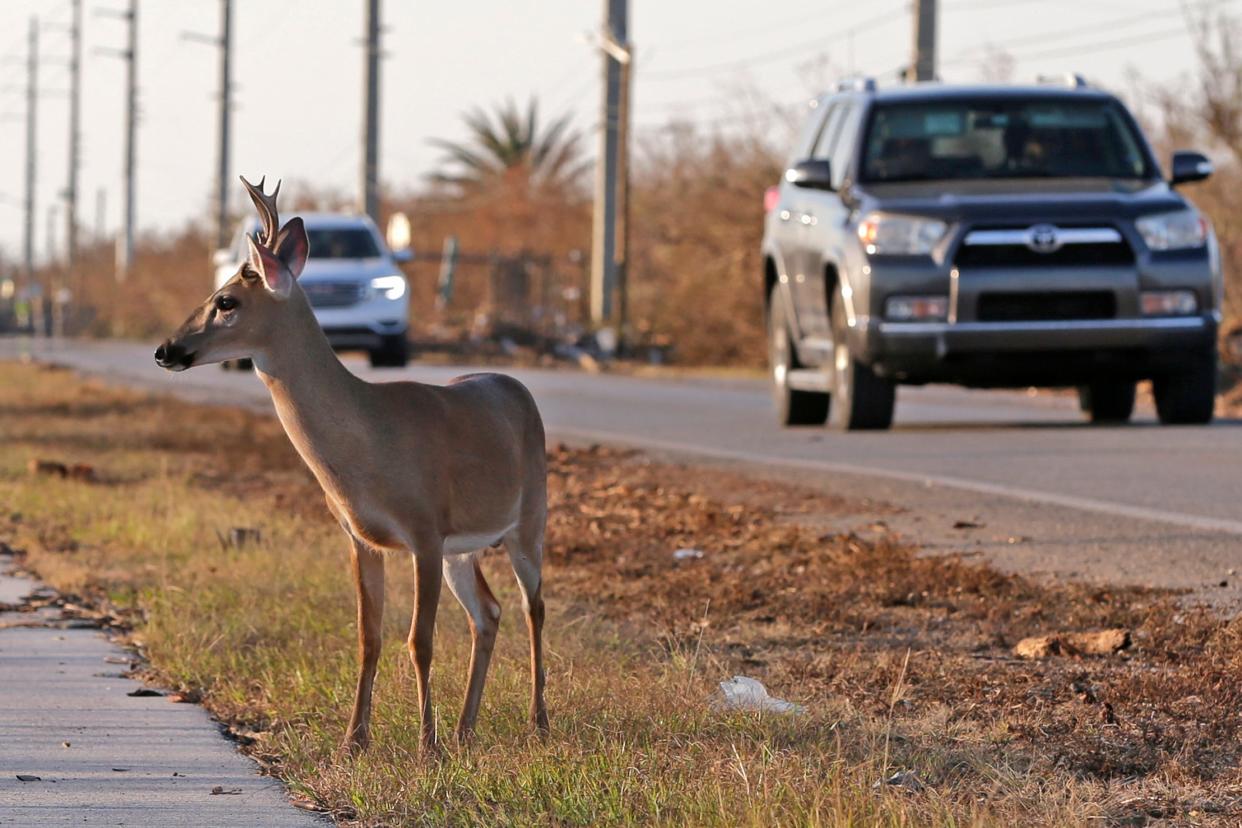Federal plans would gut essential protection for endangered Florida panthers, Key deer

Taking a page straight out of the Trump administration’s anti-conservation playbook, late last year the Biden administration quietly pushed forward a plan that would put two of Florida’s most beloved and endangered animals on the fast-track to extinction.
Despite President Biden’s directive that all federal agencies follow the best available science, buried in the administration workplan that sets the U.S. Fish and Wildlife Service’s priorities is a proposal to strip protections for the Key deer and the Florida panther.
This proposal flouts the undeniable reality that these animals face an escalating loss of habitat that threatens their existence. The best-available scientific information makes clear both species need more protection, not less.
More: Panther listing status may change as FWS expected to release population review soon
With only an estimated 200 individuals left, Florida panthers are considered among the most endangered big cats on Earth. Their limited habitat in southwest Florida is hemmed in and fragmented by highways and sprawling residential development, leading to 21 being killed by vehicles in 2021.
And in just the first 9 days of 2022, two more panthers have been struck and killed by vehicles this year – one in Glades County last Sunday; another in Collier County on Jan. 2.
Panthers also face the prospect of industrial oil development in their largest contiguously intact habitat in Big Cypress National Preserve and the looming approval of habitat-destroying residential and commercial development in an area scientists have determined must be preserved to protect the species from extinction.
The threats to Florida’s Key deer are just as troubling.
Scientists have noted that the United States’ tiniest deer — found only on the Florida archipelago — are under severe threat of extinction from disease, vehicle strikes and sea-level rise that will flood their home within decades.
The proposal to gut protections for the two animals exposes an alarming push by federal wildlife regulators to achieve a predetermined, politically driven outcome rather than one based on science and commonsense.
In the case of the Florida panther, a Fish and Wildlife Service email reveals a carefully choreographed plan to weaken or entirely eliminate protections for the panther, giving staff scientists marching orders to reach a prearranged outcome, which has been shamelessly prioritized by the Biden administration.
The politicization of key deer management is just as bad.
No reasonable person, let alone independent scientist, could ever conclude that an imperiled, miniature deer found only on low-lying islands could survive in the face of rising seas and recommend that it should have its Endangered Species Act protections stripped.
The Service’s proposal here is so far outside accepted science that it begs the question: Why is the agency doing this? Is it bowing to developers in South Florida who wish to destroy habitat, build more wildlife-killing roads and develop fossil fuel resources in wilderness? Or is it part of the reckless, unscientific plan by Fish and Wildlife Service southeast regional director Leo Miranda to delist or downlist 30 protected species every year?
This proposal indicates that these are not innocent mistakes by the Service but signs of deeply rooted, systemic problems in an agency that is demonstrating its willingness to manipulate science and on-the-ground facts to achieve political, predetermined outcomes.
Above all, the Service’s proposal reminds us that extinction is a choice.
Elise Bennett is a Florida-based senior attorney at the Center for Biological Diversity.
This article originally appeared on Palm Beach Post: Federal plans would risk extinction of Florida panthers, Key deer

